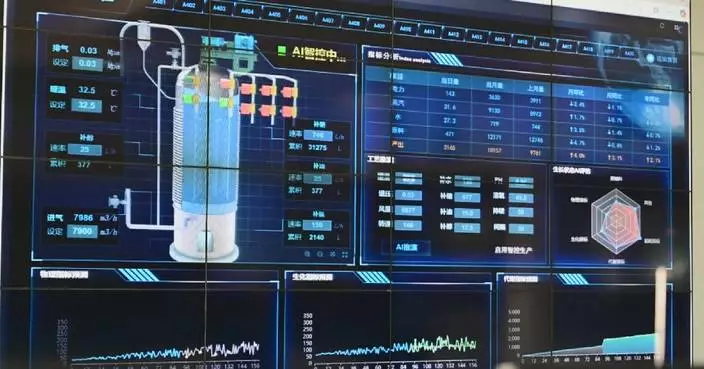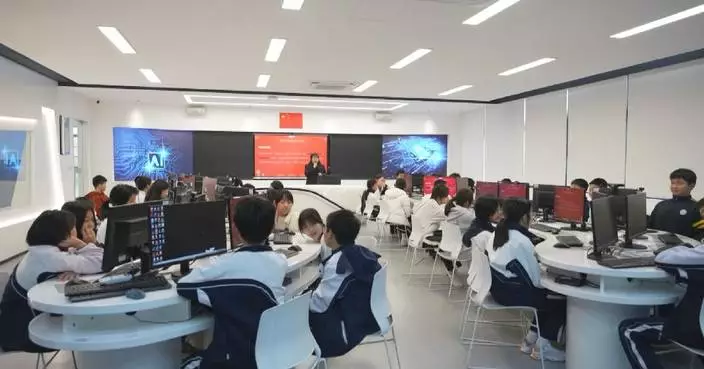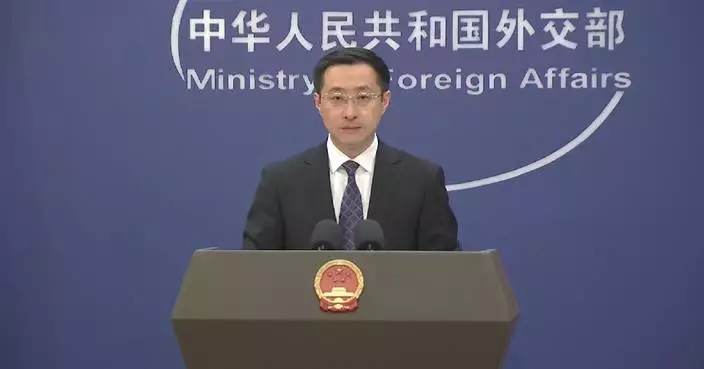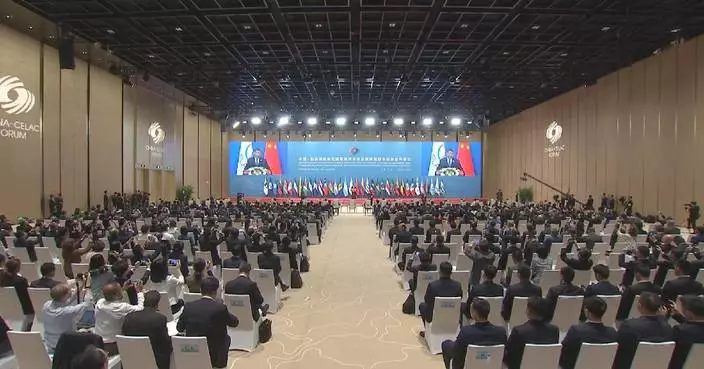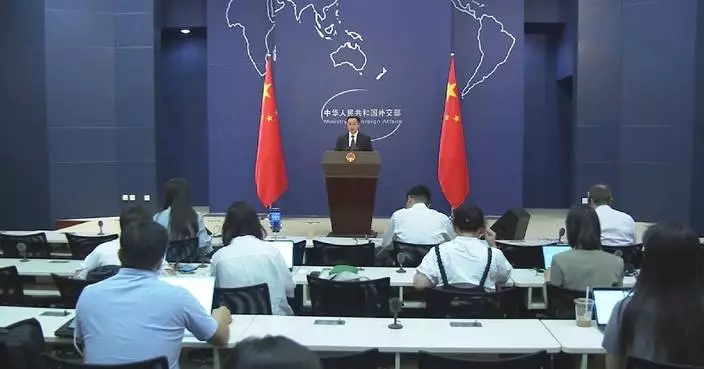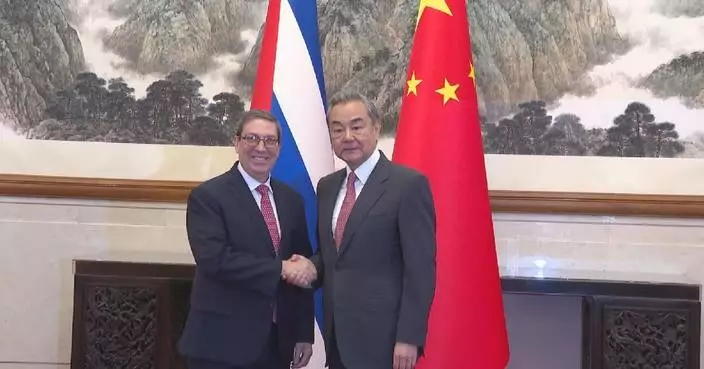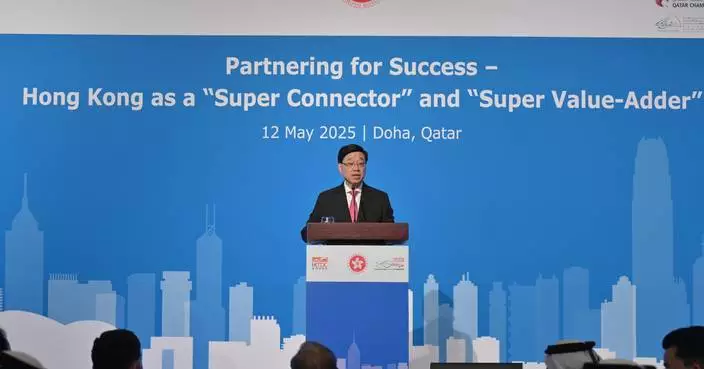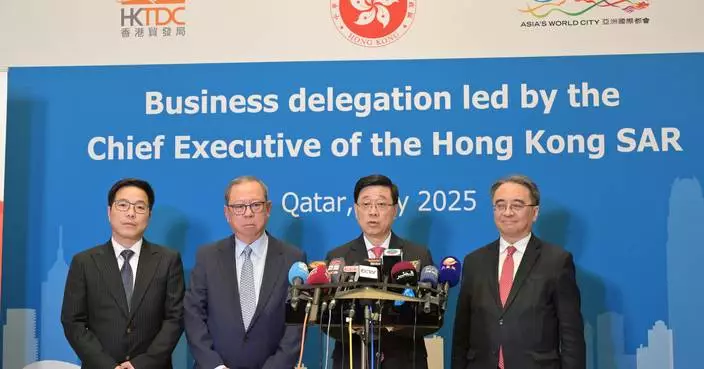Real-time payments and digital currencies define the future of transaction banking, said an executive from the Australia and New Zealand (ANZ) Banking Group.
Hari Janakirama, head of the Industry and Innovation Transaction Banking of ANZ, made the remarks in an interview with China Global Television Network on Thursday while attending the Swift International Banker's Operation Seminar 2024 (Sibos 2024) in Beijing.
The four-day Sibos 2024 financial services forum, which concluded in Beijing on Thursday, gathered nearly 10,000 participants from over 150 countries and regions to discuss banking and payments, technology and innovation, and environmental, social and governance strategies.
"There are a few themes which are coming up when it comes to latest in transaction banking. Most of them border on the concept of real-time economy, real-time everything, so real time, freshly, real-time payments, real-time liquidity. And now, what real time means will depend on what customer segment you are talking about. So if you're talking about an individual customer, like you and me sending money overseas, for example, real time is I just wanted to happen. Many of the Asian countries in the Asia Pacific, as an example, have their domestic real-time payments network. And efforts are underway to connect these payment networks so that if you are able to make a domestic payment in real time in your country, you should be able to do the same thing when you are sending a payment to the country, neighboring country. So that is happening for consumers. And eventually that will happen for business," said Janakirama.
"The other theme which is coming on to that is digital currencies and digital assets where convergence of multiple platforms where you have a platform which enables the transfer of ownership of an asset or a property, whatever it may be. And the payment which happens separately, they are converging together to make it happen at the same time. So it is more cost efficient, more faster and more transparent for the consumer. These are specific themes which are coming up in transaction banking. And all of this is underpinned by better data access to better data, more enriched data," he said.
In the interview, Janakirama also applauded the innovative development of China's digital economy which has exerted a positive impact on the banking sector.
China's digital yuan transactions amounted to 7 trillion yuan (about 986.07 billion U.S. dollars) by the end of June this year, according to the central bank.

Real-time payments, digital currencies define future of transaction banking: executive of ANZ Banking Group
French scientists at the Institute of Earth Physics in Paris (IPGP) are using lunar samples collected by China's Chang'e-5 space mission to explore the mysteries of the Moon.
This is part of the results that the China National Space Administration announced on April 24, granting scientists from institutions in France, Germany, Japan, Pakistan, the United Kingdom, and the United States to borrow lunar samples from the Chang'e-5 mission for scientific research.
Frederic Moynier, a professor at the IPGP, personally transported the lunar samples to his lab in Paris.
Moynier said that these samples, extracted from the north of the Mons Rumker in Oceanus Procellarum, also known as the Ocean of Storms, are notably younger by nearly a billion years compared to those retrieved during the Apollo missions. This revelation suggests a prolonged period of lunar volcanic activity that extends beyond previous scientific understanding, he added.
"The Moon is a very cold planet and so you have no activities. But these Chang'e-5 samples really changed our understanding, we had volcanism much later than what we thought, and this makes us think about what is inside the Moon and why could you have volcanisms so late," said Moynier, also a member of the IPGP's Cosmochemistry, Astrophysics and Experimental Geophysics (CAGE) team.
Employing isotope detection techniques, Moynier is meticulously analyzing the traces of various elements within the lunar samples, aiming at juxtaposing the findings from the Chang'e-5 lunar samples with those from other space missions and constructing a comprehensive portrait of the Moon's composition.
"My expectation is that it will be probably similar to Apollo, and if it is similar, we mean that we can now make a real story about the whole moon. If this is different, which I don't know yet, but if this is different, it's probably even more interesting. It means that the Moon, inside, is not homogeneous like the Earth," he said.
Recognizing China's prowess in space research, Moynier foresees a deepening collaboration between Chinese and French scientists with the arrival of lunar samples in French laboratories.
"Because of the Chang'e-5 sample, but also because they have lots of former students who are successful professors in China. So, I used to go to work in China several times a year for exchange, to give conferences," said Moynier.
Long Zhengyu, a Chinese Ph.D. student at the IPGP, highlighted the significance of international cooperation.
"Foreign labs can provide us with some analysis and testing conditions with the Chang'e lunar samples from China. So, this marks the scientific research collaboration between China and France," said Long.
In December 2020, the Chang'e-5 probe brought back China's first samples collected from the moon, successfully concluding China's three-step lunar exploration program of orbiting, landing, and returning samples. The program began in 2004.
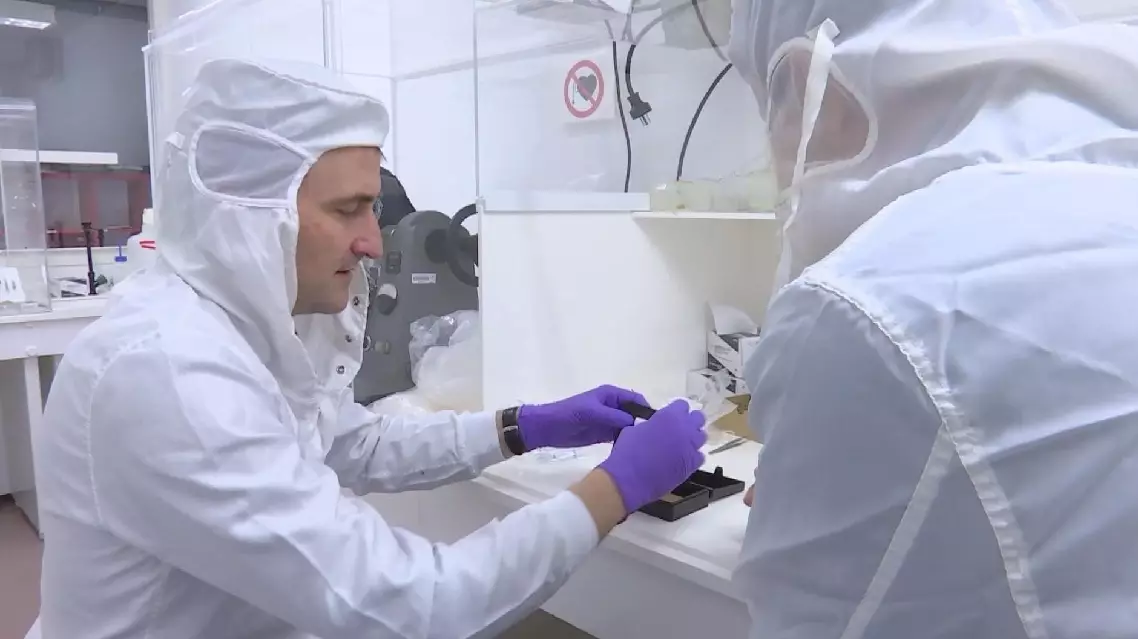
French scientists conduct research on lunar samples borrowed from China





